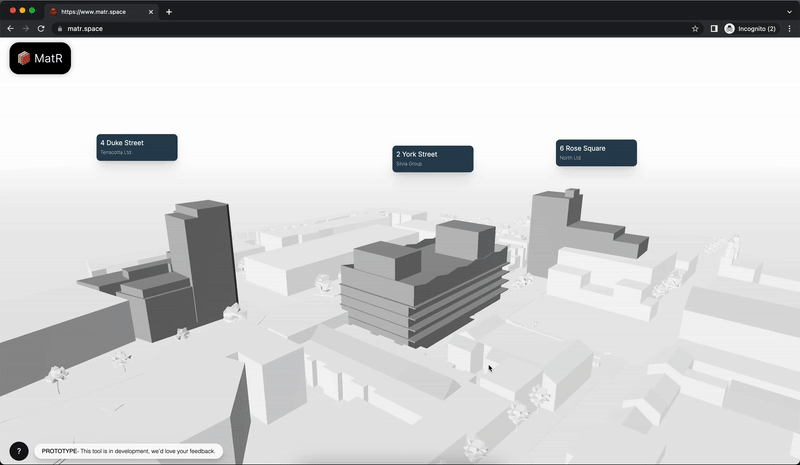Matr
MatR is a prototype tool for working with data about materials, building performance characteristics and their environmental impact. The project emphasizes the need for a holistic approach to building assessment, promoting sustainable building practices, combating the climate crisis and reducing the impact of excessive construction and material production on environmental pollution.
Developed by the Center for Spatial Technologies in collaboration with Dark Matter Labs (DML), it aims to transform our understanding and management of buildings and their environmental impact. This open-source, web-based tool is designed to aggregate comprehensive data on building materials, assess their impact on the environment, and evaluate the operational performance of buildings throughout their lifecycle.

Recognizing the significant environmental footprint of the built environment, which accounts for 40% of global carbon emissions, MatR seeks to address the urgent need for more sustainable construction practices. With buildings also responsible for a substantial proportion of material extraction and waste and impacting indoor air quality and health, the project emphasizes the need for a holistic approach to evaluating building design and use.
MatR visualizes models of buildings, linking each element to a wealth of data, including information on environmental impact and material circularity. The tool is designed to integrate with Building Information Modelling (BIM) systems, allowing architects, developers, and city officials to make more informed decisions about material selection, building design, and operational efficiency.
To learn more about MatR, read Part 2 of “Towards a post-carbon built environment” by DML.